Agriculture is an important industry for all EU countries and they all receive EU funds through the Common Agricultural Policy (CAP). These funds support farmers directly through the European Agricultural Guarantee Fund and rural areas, climate action and the management of natural resources through the European Agricultural Fund for Rural Development.
Find out how the Common Agricultural Policy supports farmers
EU agricultural subsidies by country
In 2019, €38.2 billion was spent on direct payments to farmers and €13.8 billion on rural development. A further €2.4 billion supported the market for agricultural products.
The rules governing how Common Agricultural Policy funds are spent is determined by the EU’s long-term budget. The current rules run until December 2022, after which the most recent reform of the Common Agricultural Policy will come into effect and run until 2027.
Agriculture is an important industry for all EU countries and they all receive EU funds through the Common Agricultural Policy (CAP). These funds support farmers directly through the European Agricultural Guarantee Fund and rural areas, climate action and the management of natural resources through the European Agricultural Fund for Rural Development.
Find out how the Common Agricultural Policy supports farmers
EU agricultural subsidies by country
In 2019, €38.2 billion was spent on direct payments to farmers and €13.8 billion on rural development. A further €2.4 billion supported the market for agricultural products.
The rules governing how Common Agricultural Policy funds are spent is determined by the EU’s long-term budget. The current rules run until December 2022, after which the most recent reform of the Common Agricultural Policy will come into effect and run until 2027.
Agricultural production in Europe
EU agriculture produces a rich variety of food products, from cereals to milk. The EU has legislated to ensure that the food produced and sold in the EU is safe to eat. The EU’s farm to fork strategy, announced in 2020, aims to ensure that food is also produced more sustainably. MEPs want to cut pesticide use to better protect pollinators and biodiversity, end the use of cages in animal farming and increase land use for organic farming by 2030.

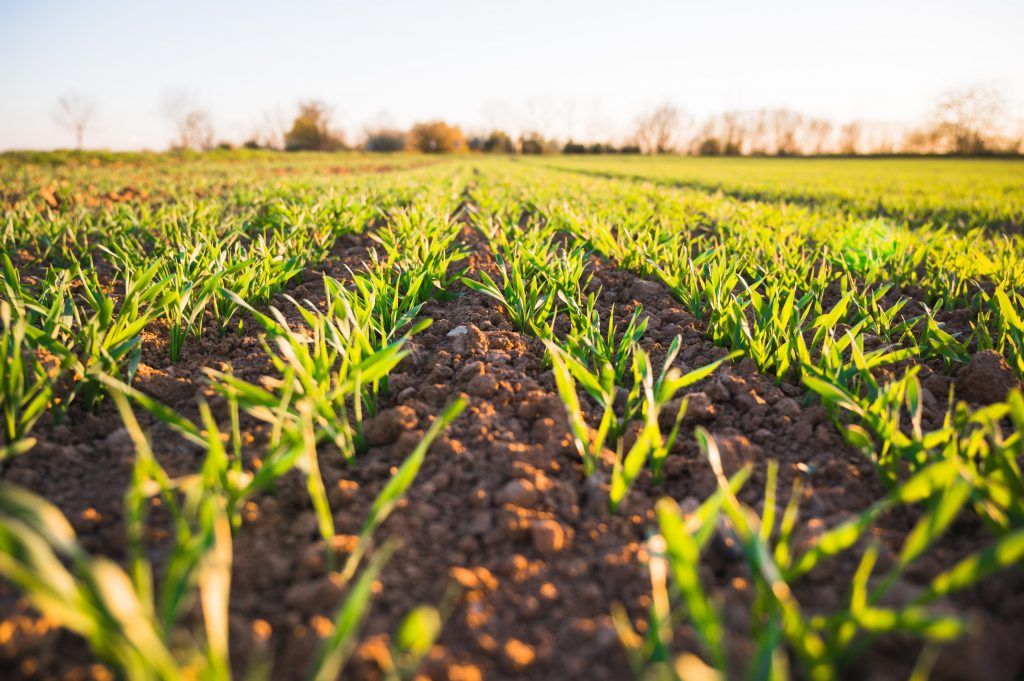
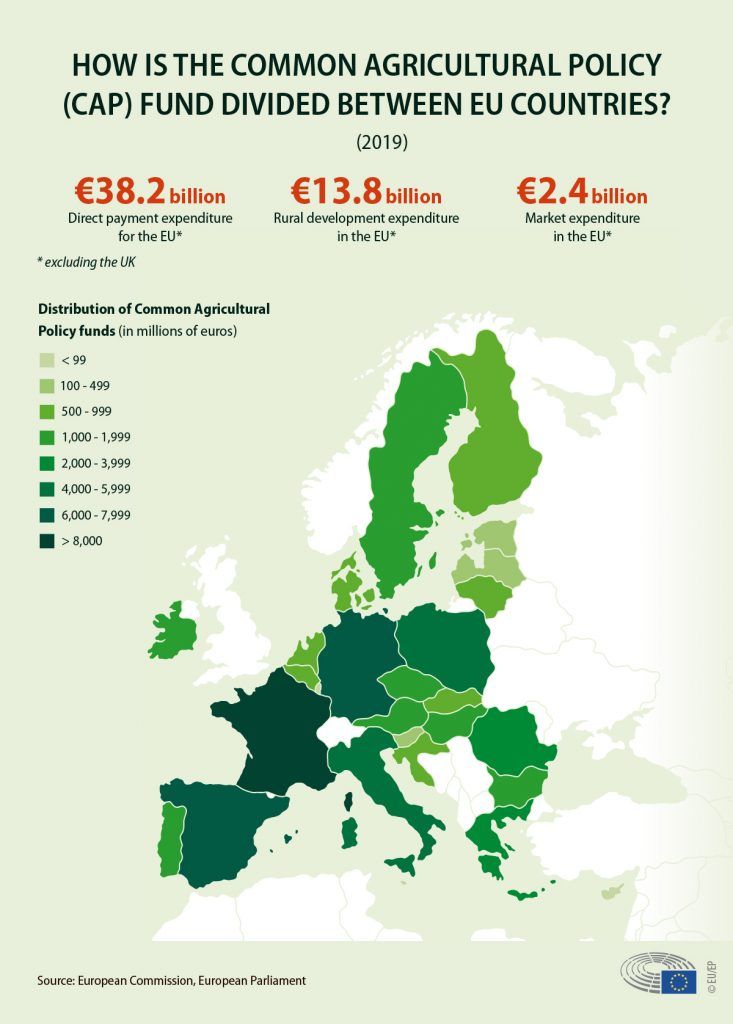
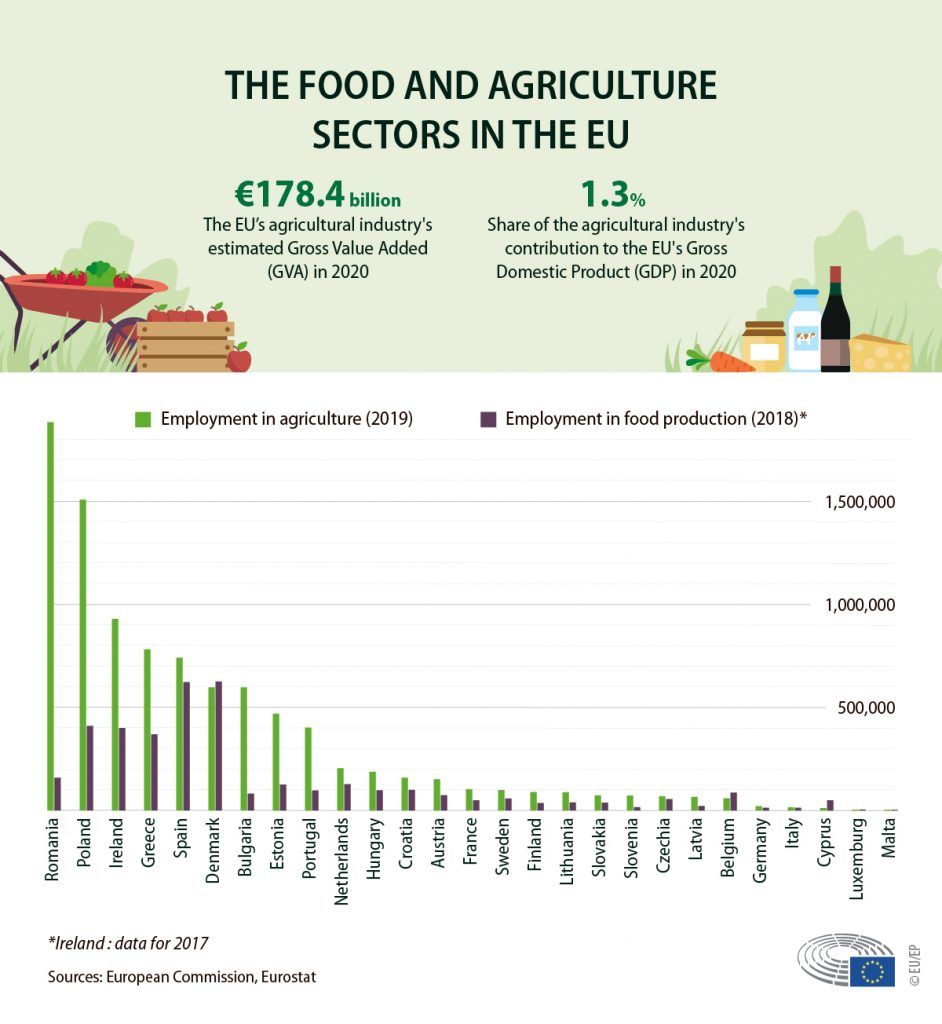
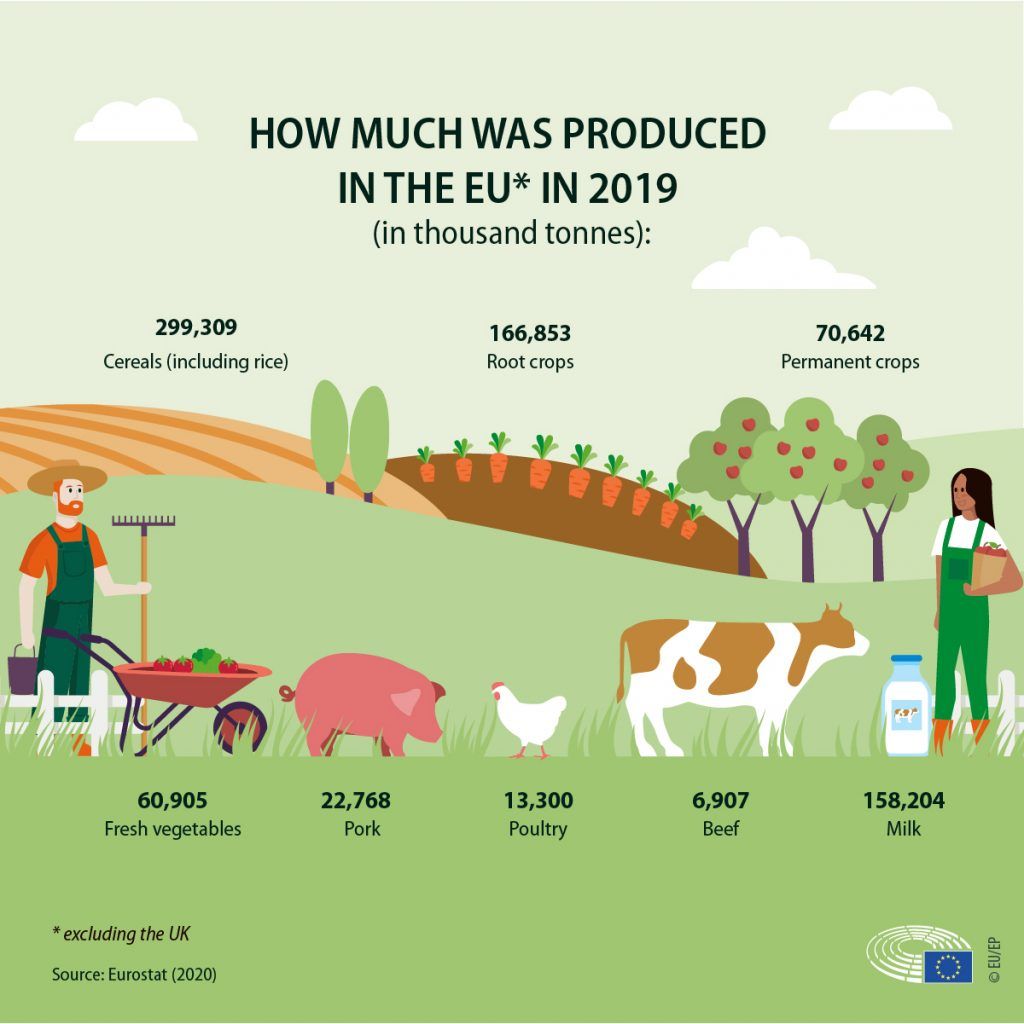


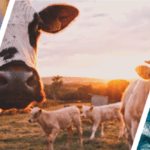
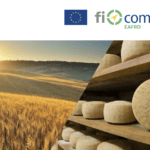
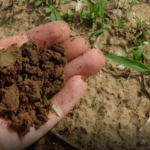
Leave a Reply